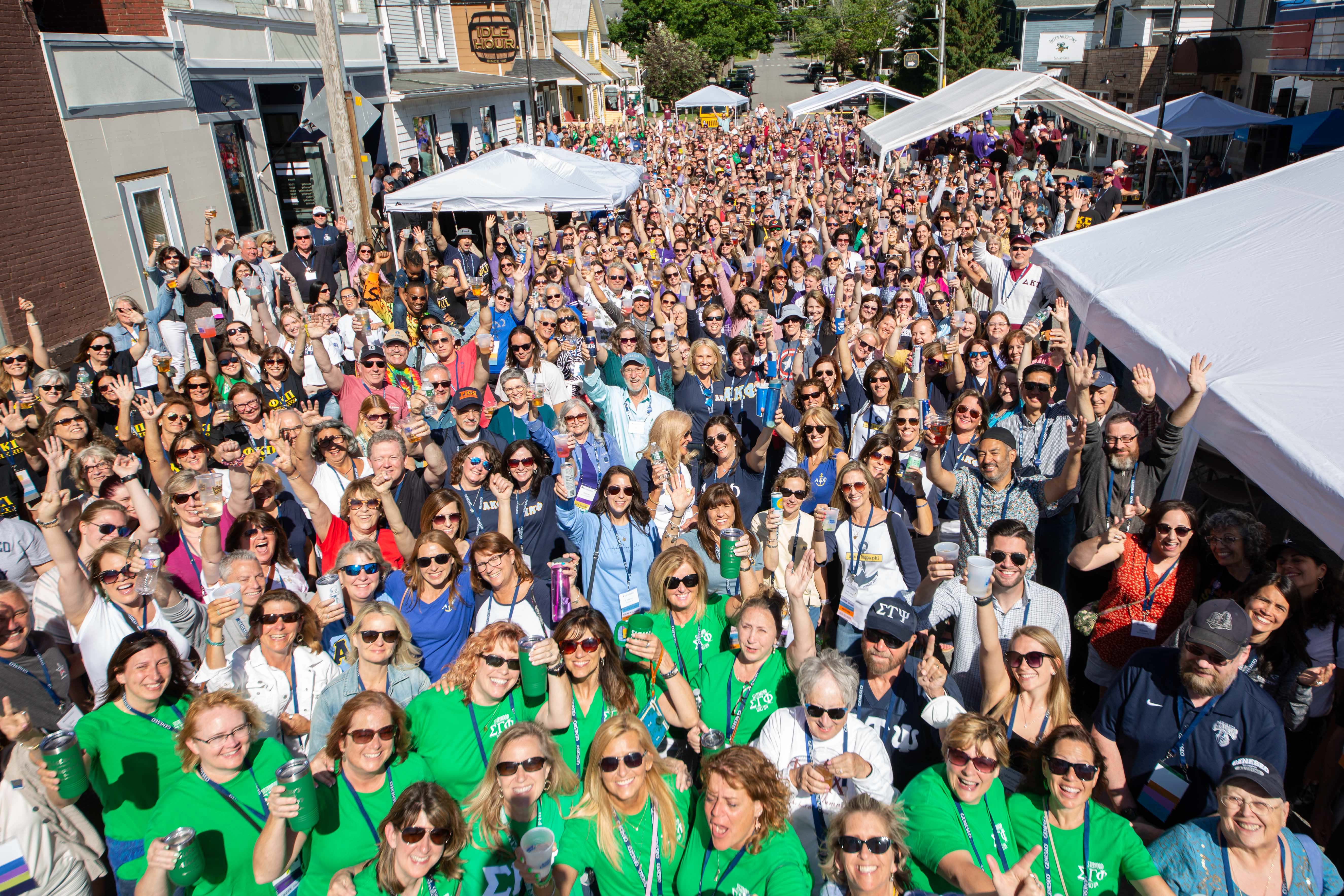An experimental brain implant gave Emily Borghard ’11 options in life. She uses them to help the homeless and others in challenging times.
By Emily Borghard ’11
When I arrived as a freshman at Geneseo, my father said he expected to get a call within a couple of weeks to pick me up. Freshman year is slightly terrifying on its own, and I was going through a medical crisis, trying to diagnose and treat some form of epilepsy that my neurologist attributed to psychiatric needs. I knew it was not. It was debilitating and baffling. I tried to have as normal a college experience as possible, but I was very limited and unsure if I could graduate.
My possibility of a future came from a neurologist at Columbia University Irving Medical Center who thought outside the box. He diagnosed me with auto-immune encephalitis, a rare condition that causes my immune system to attack my brain. He suggested an experimental brain stimulator — a tiny device surgically implanted inside my skull. The stimulator tracks brain activity and sends a small shock when it detects symptoms of an oncoming seizure, thus preventing it.
I was one of the first in the world to receive this device during a clinical trial. That small implant opened the doors of the world to me in several ways.
I graduated from Geneseo, then taught English in France while I figured out my next step in life — while remembering that, at one point, Geneseo seemed impossible. Now, graduate school could be a reality.
I always loved the book and the film “Pay It Forward,” and its message of a chain of kindness and goodwill through our actions. I wasn’t sure what form mine would take, but so many people had been a voice for me, helping and advocating for me during my time of need, that I, too, wanted to pay it forward. I enrolled in a social work program at Fordham University. My evening commute to my field placement in New York City led me past countless homeless men and women in the subways. I had the idea that it was possible to do more for them.
I started buying and giving away socks on my commute, and I met Mark, who lived on the street by the 168th Street station. He introduced me to others sleeping in the station and the meals served on Sundays at nearby St. John’s church. I learned how difficult it can be to get toiletries, gloves, underwear and other basics. He was the inspiration for what would become Sidewalk Samaritan.
I created the nonprofit organization in 2019 to raise awareness and help people more easily donate or join the effort. What started out with me carrying a bag of supplies to and from work is now a twice-monthly handout at St. John’s with volunteers who help hundreds. The organization garners news coverage and hosts fundraising events. We receive donations from and developed partnerships with sock and sleeping bag manufacturers and other brands that help with dozens of boxes of supplies.
Personally, I’ve come full circle in my career. I am a caseworker for patients of the neurology department for epilepsy and multiple sclerosis at Columbia University Irving Medical Center, where I had my implant surgery and only steps away from the subway station where I met Mark and started my pay-it-forward journey. Five days a week, I am the patients’ advocate, assisting them in meeting with doctors, navigating insurance and housing and other challenges of their care. Two or more days a week, I am a Sidewalk Samaritan hoping that new socks will keep infection away and sleeping bags or McDonald’s gift cards will help someone get through another night.
Homelessness in America, and in any community, is a super complex problem. What I do is not going to solve the homeless problem, nor am I trying to solve it. I am looking to provide some assistance, some dignity, and maybe a little hope. Unfortunately, Mark passed away in 2020. I wish he could see what the effort has become. In some way, he provided me hope at the end of a day, and that hope keeps this effort going. He will always be a big part of it.
My story and those who support my effort are good reminders that everybody has the possibility to make an improvement in other people’s lives and take something into their own hands — whatever it may be. Just a few days ago, a woman said she had seen us distributing clothing at St. John’s and wants to help. This is what feeling empowered to take action is all about.
Emily Borghard ’11, social worker and founder of Sidewalk Samaritan, embraced medical innovation for the possibility of pursuing her dreams. Her experiences inspired her to be an advocate, voice, and do-er for others. She is an ardent believer in the power of paying it forward.

Emily Borghard ’11 and Mark, who inspired her to begin Sidewalk Samaritan, during a photo for the Geneseo Scene in 2018. /File photo by Keith Walters ’11










